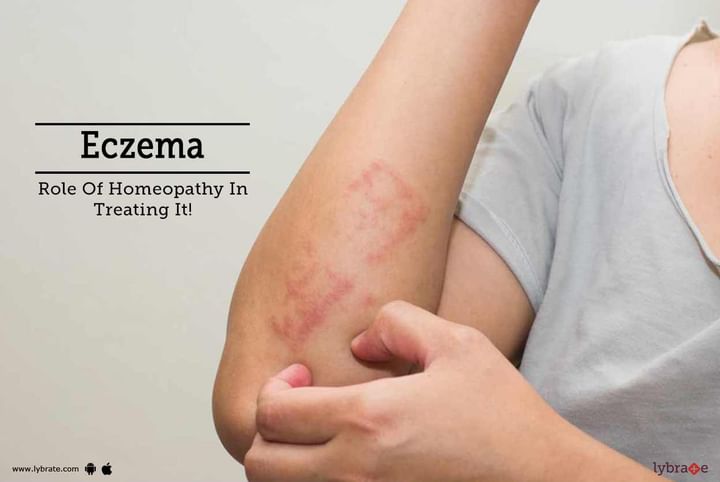Eczema - Role Of Homeopathy In Treating It!
What is eczema?
eczema is a common skin condition marked by itchy and inflamed patches of skin. It’s also known as atopic dermatitis. It is more common in babies and young children and often occurs on the faces of infants. It also often appears inside the elbows and behind the knees of children, teenagers, and adults. In rare cases, atopic dermatitis can first appear during puberty or adulthood. It affects males and females equally.
What are the types of eczema?
When people refer to eczema, they usually mean atopic dermatitis. This is the common and chronic type of eczema.
Other types include:
Contact dermatitis is caused by contact with irritants. Burning, itching, and redness occur. The inflammation goes away when the irritant is removed. Dyshidrotic dermatitis affects fingers, palms of the hands, and soles of the feet. It causes itchy, scaly patches of skin that flake or become red, cracked, and painful. The condition is more common in women. Nummular dermatitis causes dry, round patches of skin in the winter months. It usually affects the legs. It is more common in men. Seborrheic dermatitis causes itchy, red, scaly rashes, particularly on the scalp, on the eyebrows, on the eyelids, on the sides of the nose, and behind the ears.
What Are Symptoms and Signs of Eczema?
Usually, the first symptom of eczema is intense itching. The rash appears later and is red and has bumps of different sizes. The rash itches and may burn, especially in thin skin like the eyelids. If it is scratched, it may ooze and become crusty. In adults, chronic rubbing produces thickened plaques of skin. Having one or more round areas is referred to as nummular (coin shaped) eczema and may be confused with fungal infections.
Some people develop red bumps or clear fluid-filled bumps that look "bubbly" and, when scratched, add wetness to the overall appearance. Painful cracks in the skin can develop over time. While the skin behind the ear may be involved, the outer ear itself is usually spared. Eyelids are often puffy, red, and itchy. The itching may be so intense that it interferes with sleep. Asteatotic eczema is a term often applied to describe patients who have thin, dried, cracked-appearing skin, usually especially bad on the lower legs.
What causes eczema?
chemicals found in cleaners and detergents that dry out the skin rough scratchy material like wool synthetic fabrics raised body temperature sweating temperature changes sudden drop in humidity stress food allergies animal dander upper respiratory infections
How is eczema diagnosed?
To diagnose eczema, a doctor will order a complete physical exam and ask you questions about your symptoms. There’s no specific test that can be used to diagnose eczema. But a patch test can pinpoint certain allergens that trigger symptoms, like skin allergies associated with contact dermatitis (a type of eczema). During a patch test, an allergen is applied to a patch that is placed on the skin. If you are allergic to that allergen, your skin will become inflamed and irritated.
Foods to eat: Fatty fish You may be able to reduce your symptoms by eating fatty fish, such as salmon and herring. Fish oil contains high levels of omega-3 fatty acids, which are anti-inflammatory. You may also consider taking an omega-3 supplement. In general, it’s recommended that you get at least 250 mg of omega-3 fatty acids daily, preferably from food.
Foods high in quercetin include:
Apples, blueberries, cherries, broccoli, spinach, kale, Foods to Avoid What you eat may not directly cause eczema, but it can trigger an increase in symptoms. This is especially true if you eat a food that you’re allergic or otherwise sensitive to. Common food allergies include:
- dairy products
- eggs
- soy nuts
Foods containing preservatives and artificial ingredients may also exacerbate symptoms. This includes foods high in trans fats, such as margarine, processed food, and fast food. Foods high in sugar may also trigger eczema flare-ups. Sugar causes your insulin levels to spike, which can result in inflammation.
Items typically high in sugar include:
- cakes
- some coffee drinks
- some sodas
- some smoothies
- fast food items, such as burgers
Homeopathy has the best solution for eczema but in order to treat from the roots detailed history of the patient is essential. Homeopathy treatment is provided by considering detailed history like nature of the patient, his family history, habits, past history, etc. In case you have a concern or query you can always consult an expert & get answers to your questions!



+1.svg)
